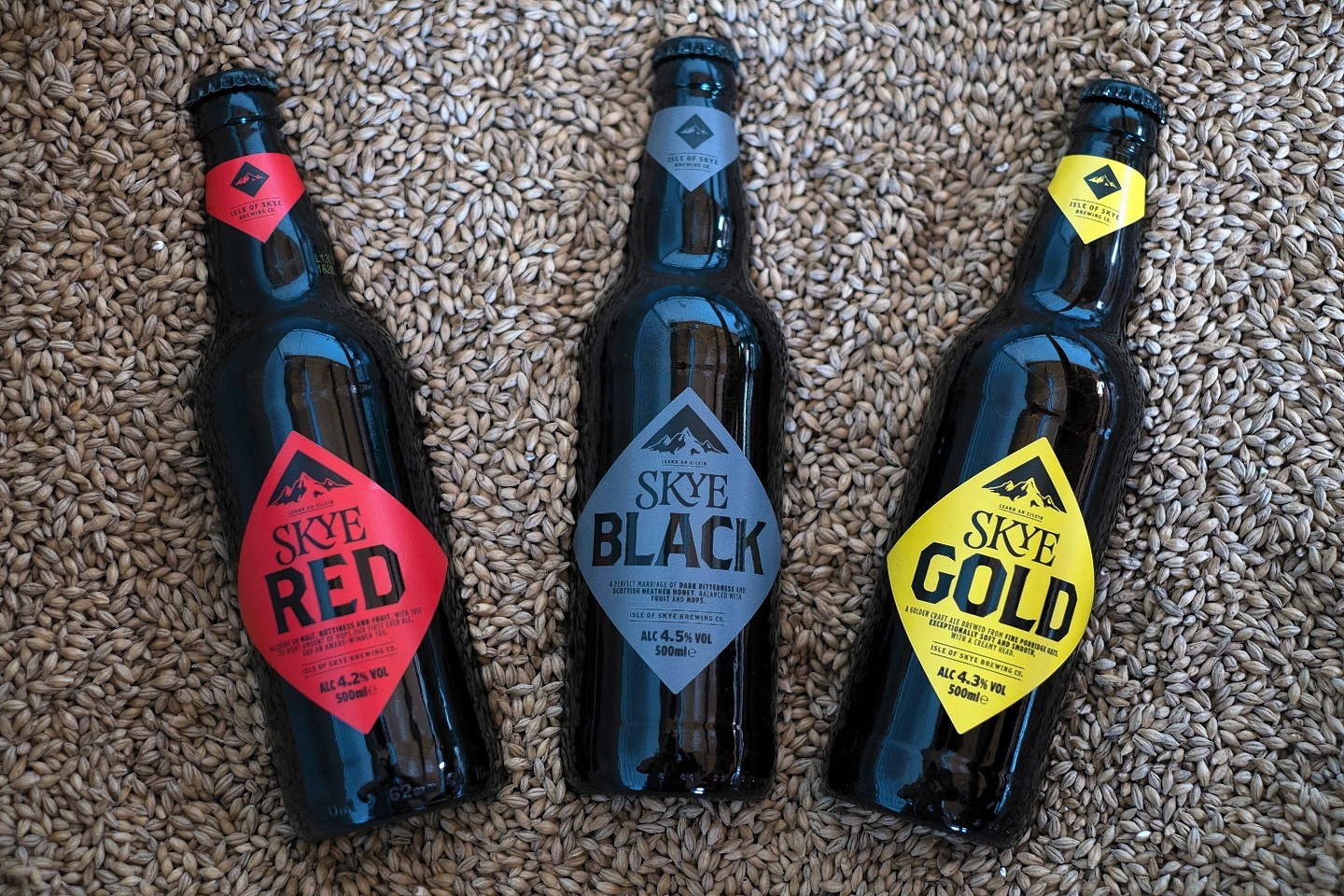A brewery based on the Isle of Skye has received a £116,000 grant from Highlands and Islands Enterprise (HIE) to boost exports.
Overall, the Isle of Skye Brewing Company intends to spend £450,000 to expand production and re-brand their products to widen their appeal to a global audience.
The Uig-based firm also expects to hire five new staff members to its current workforce of 12 in the first phase of its expansion plan.
The brewery has begun the rebranding exercise, with Red Cuillin becoming Skye Red, Black Cuillin now Skye Black and Hebridean Gold no called Skye Gold.
Kenny Webster, Managing Director said: “There is so much more potential to grow the business both at home and internationally and we would like to introduce new kegged products.
“We are delighted with HIE’s investment as this will allow us to increase production, support our rebranding and establish new national and overseas markets.
“To accommodate the increase in production, a new building is required to house the existing storage to free up room within the current brewery building for new tanks.”
Eventually Mr Webster expects to double the number of employees and “triple our turnover in the next three years”.
The brewery was established with support from HIE in 1998 by founder Angus MacRuary, although the main operator and majority shareholder is now Mr Webster.
Mr Webster was formerly the co-owner of north-east soft drinks firm, Sangs, before it fell into administration and was sold to Florida-based drinks giant Cott Beverages in 2012.
Mr MacRuary remains as the firm’s Operations Director.
He said: “Our new expansion plan means that we are now revisiting export markets where we have previously sold our beers such as USA, Canada, Finland, Switzerland, and Japan.
“This has been aided by the Smart Exporter programme delivered by HIE – an excellent programme which we found to be informative and very beneficial.
“Export markets are to the fore in our business plan, which will double our production capacity in the next four years. It’s an incredible journey and we are set to export 20% of all production in the next three years.”
